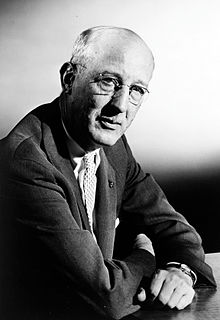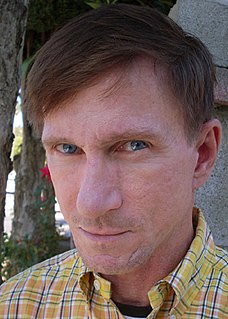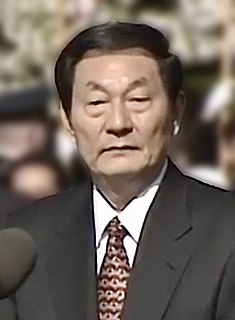A Quote by Bruce Catton
Abraham Lincoln was not all brooding and melancholy and patient understanding. There was a hard core in him, and plenty of toughness. He could recognize a revolutionary situation when he saw one, and he could act fast and ruthlessly to meet it.
Related Quotes
I assume, gladly, that in the allocation to America of remarkable leaders like Thomas Jefferson, George Washington, and Abraham Lincoln, the Lord was just as careful. After all, if you've got only one Abraham Lincoln, you'd better put him in that point in history when he's most needed-much as some of us might like to have him now.
I think that when you look at the great politicians, the two greatest in my view were George Washington and Abraham Lincoln, they certainly had character traits. You also know Abraham Lincoln overcame severe depression problems that he had when he was younger, which gave him the strength and the character later on.
You could give Aristotle a tutorial. And you could thrill him to the core of his being. Aristotle was an encyclopedic polymath, an all time intellect. Yet not only can you know more than him about the world, you also can have a deeper understanding of how everything works. Such is the privilege of living after Newton, Darwin, Einstein, Planck, Watson, Crick and their colleagues.
When I need to stretch my legs, I can walk across the street to the museum and relax among the illustrations of Abraham Lincoln's life, too. In a way, it reflects the halves of Lincoln's own character - one all jokes and buffoonery, the other all high-minded seriousness. If he could absorb both into his personality, I think I can, too.
There's been more written about Lincoln than movies made about him or television portraying him. He's kind of a stranger to our industry, to this medium. You have to go back to the 1930s to find a movie that's just about Abraham Lincoln. I just found that my fascination with Lincoln, which started as a child, got to the point where after reading so much about him I thought there was a chance to tell a segment of his life to to moviegoers.
What Abraham Lincoln had to face was a culturally and politically cohesive bloc of states comprising half the country, refusing to discuss even the limitation of slavery; while he had only the most feeble means of enforcement. The British and the French could do their emancipating at a distance; Lincoln had armed resistance almost literally at his doorstep.
Until the early 90s, when I was working on a project about the idea of free will in American philosophy. I knew that Lincoln had had something to say about "necessity" and "fatalism," and so I began writing him into the book. In fact, Lincoln took over. I wrote instead 'Abraham Lincoln: Redeemer President,' in 1999, and I've splitting rails with Mr. Lincoln ever since. If there's a twelve-step process for this somewhere, I haven't found it yet.





































